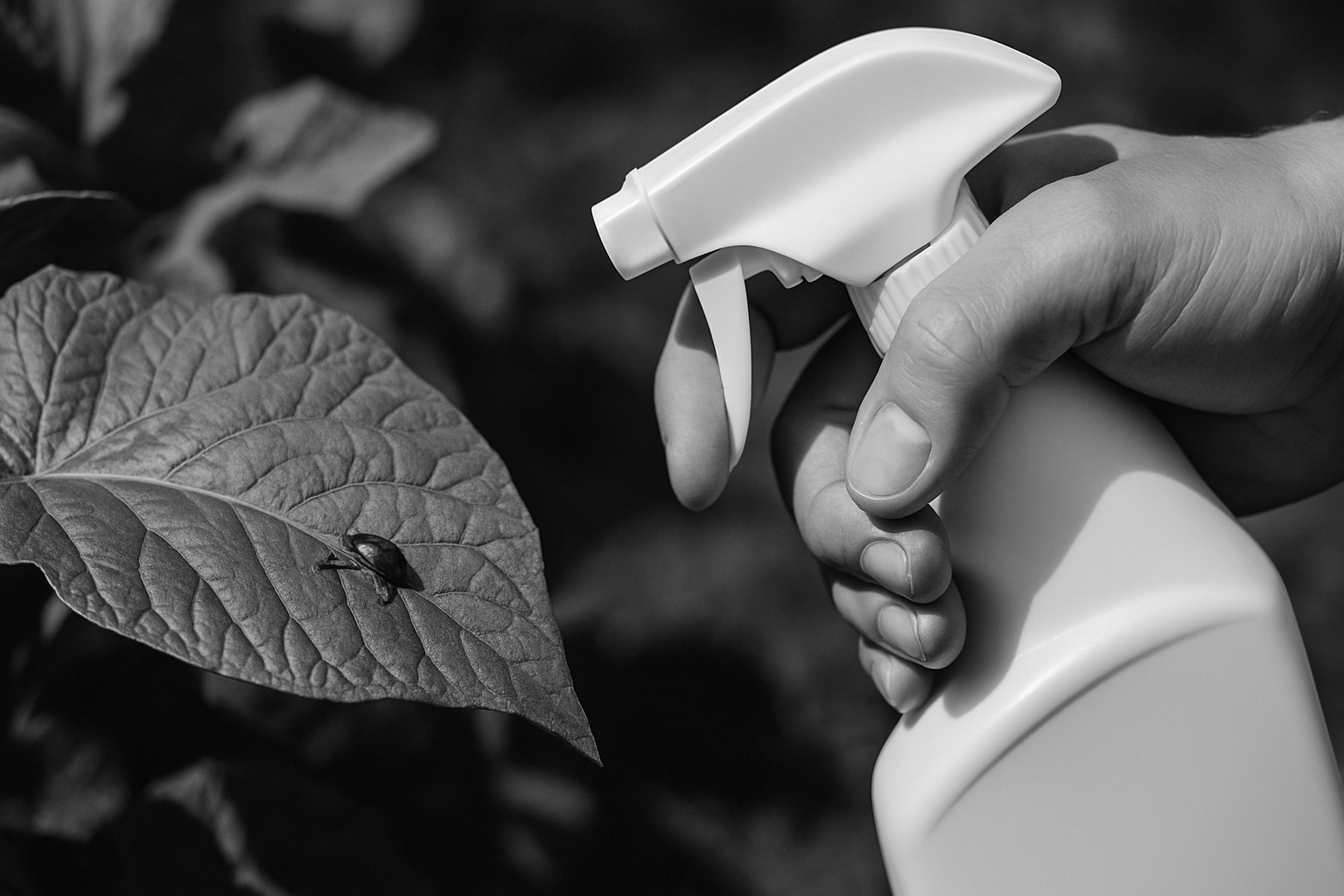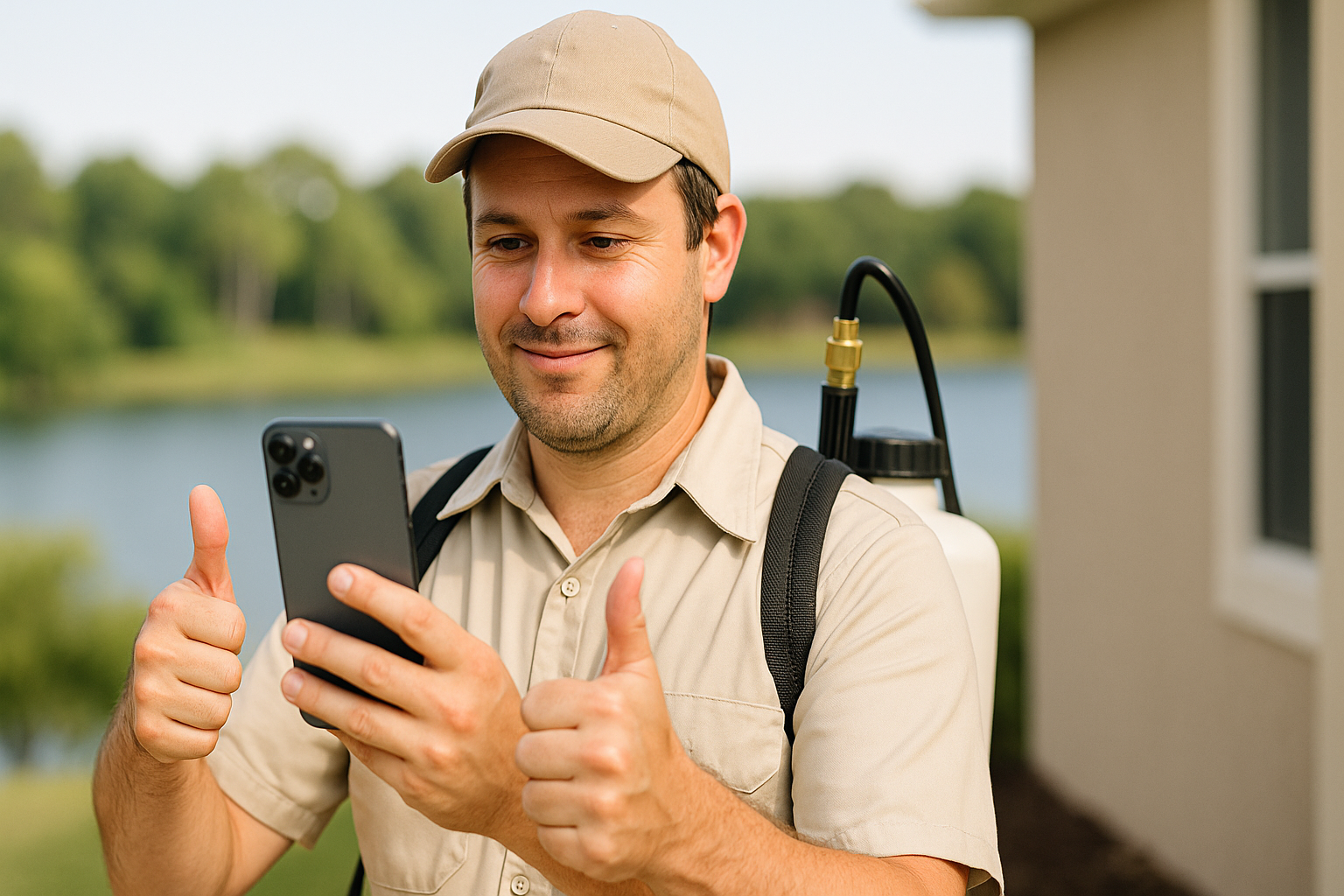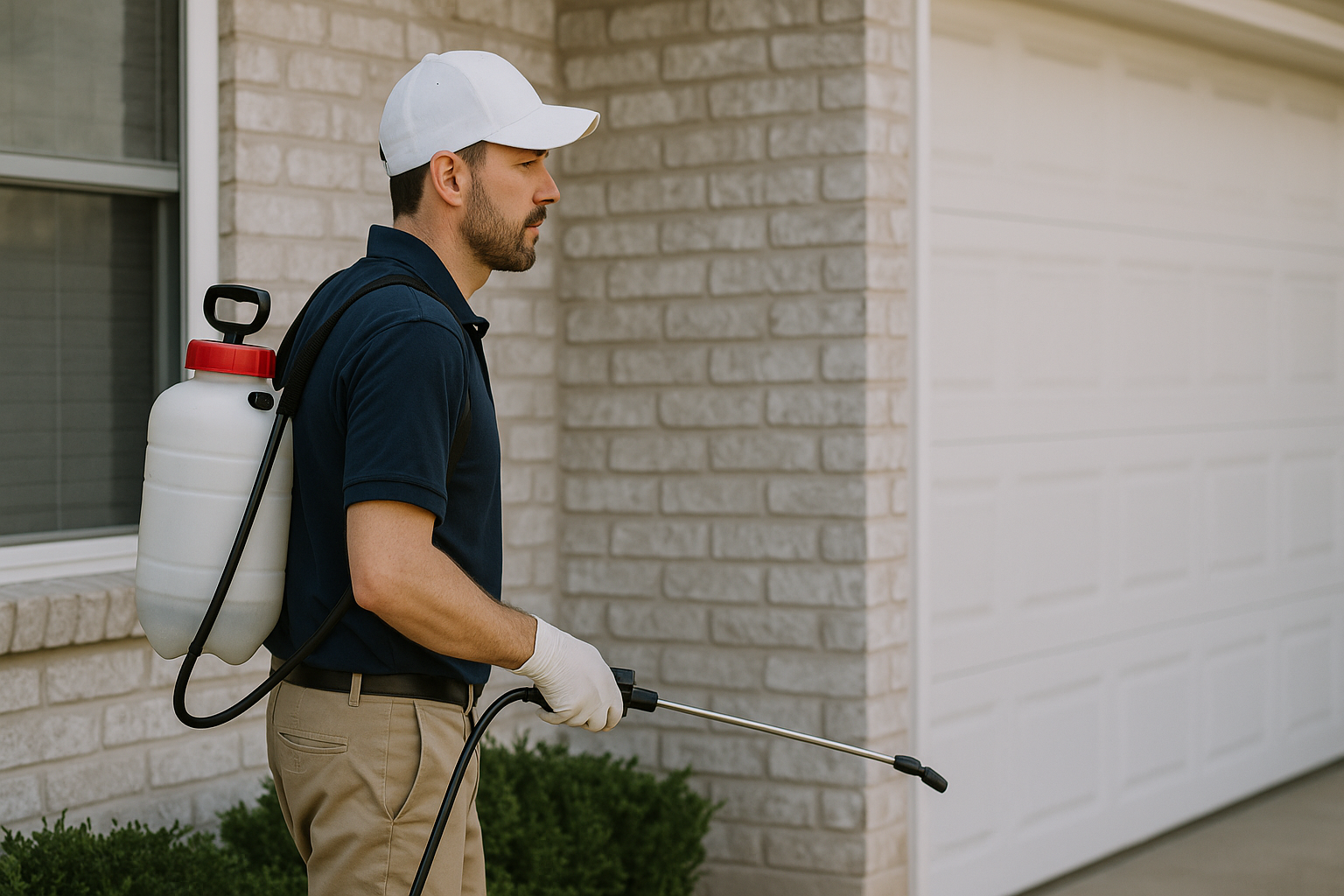Table of Contents
Understanding Garden Insect Control
Garden Insect Control is essential for maintaining healthy, vibrant plants throughout the year. In the UAE, where humidity and warm temperatures foster a range of insect activity, controlling harmful insects while protecting beneficial ones is a delicate balance. The goal is to manage pest insects that damage ornamental and edible plants without disrupting the ecosystem, especially pollinators vital to fruit and crop production.
Unlike chemical-heavy approaches that may harm the environment or beneficial garden inhabitants, sustainable Garden Insect Control employs integrated practices such as encouraging helpful insects and adopting companion planting. These methods prioritize long-term health and productivity of your garden in cities like Dubai, where urban gardening grows in popularity.
When seeking solutions, it’s crucial to understand what types of garden insects exist, which are harmful, and which support garden growth. Consequently, effective Garden Insect Control taps into nature’s own pest management systems while carefully applying targeted methods to prevent infestations.
Beneficial Insects to Boost Your Garden
Many insects are allies in the garden, preying on pests or aiding plant pollination. Recognizing and encouraging these beneficial insects plays a vital role in Garden Insect Control.
Key Beneficial Insects in UAE Gardens
- Ladybugs (Coccinellidae): These voracious predators feed on aphids, mites, and other soft-bodied pests.
- Praying Mantises: Ambush predators that consume a wide range of harmful insects, helping balance garden populations.
- Lacewings: Their larvae are important predators of aphids and whiteflies.
- Hoverflies: Adults pollinate flowers, and larvae consume aphids effectively.
- Parasitic Wasps: Tiny wasps that parasitize pest insects, controlling populations naturally.
- Bees (native solitary bees and honeybees): Vital pollinators for many fruit and flower plants common in UAE home gardens.
Encouraging these insects involves providing habitat, avoiding harmful insecticides, and planting flowers and herbs that supply nectar and pollen. A thoughtful approach ensures Garden Insect Control that favors beneficial species and keeps pest populations manageable.
Companion Planting for Natural Insect Management
Companion planting involves growing specific plants together to enhance pest control or support plant health. In Garden Insect Control, this technique reduces insect damage by confusing pests, attracting beneficial insects, or repelling harmful ones.
Popular Companion Planting Combinations in the UAE Garden
| Companion Plants | Benefit | Insect Impact |
|---|---|---|
| Marigolds with tomatoes | Repels nematodes and some beetles | Reduces root pests and attracts beneficial insects |
| Basil with eggplants | Enhances flavor and repels whiteflies | Helps control sap-sucking pests |
| Lavender near vegetables | Attracts pollinators, repels moths | Improves pollination, reduces caterpillar damage |
| Sunflowers with cucumbers | Attracts pollinators and predatory wasps | Increases fruit set and pest regulation |
| Chives near carrots | Deters carrot flies | Reduces root pest damage |
Using companion planting strategically supports natural pest control, reducing the need for synthetic insecticides that may harm beneficial insects. This approach aligns well with Garden Insect Control principles suited for UAE’s climatic conditions and urban farming settings.
Protecting Pollinators While Controlling Pests
Pollinators like bees and butterflies are indispensable for fruit trees, vegetables, and many flowering plants common in UAE home gardens. However, indiscriminate use of pesticides is a leading cause of pollinator decline and garden imbalance.
Effective Garden Insect Control integrates methods that target pest insects specifically while minimizing risks to pollinators and other beneficial insects. These include:
- Using physical barriers such as nets or sticky traps to shield plants from pests.
- Applying insecticidal soaps or neem oil carefully at times when pollinators are inactive (e.g., early morning or late evening).
- Incorporating habitat features like flowering borders or bee hotels to support pollinator populations year-round.
- Avoiding broad-spectrum insecticides known to harm beneficial species and following UAE Ministry of Climate Change & Environment recommendations.
For additional guidance, Dubai Municipality’s Public Health Pest Control Section offers resources on safe, effective pest management practices in urban and residential areas.
Practical Tips for Effective Garden Insect Control
Combining knowledge of beneficial insects, companion planting, and pollinator protection creates a holistic plan for Garden Insect Control. Implement the following tips tailored to UAE gardens for best results:
1. Regular Monitoring
Inspect plants often for early signs of pest damage or beneficial insect presence. Early detection reduces the need for intense control measures and strengthens your Garden Insect Control strategy.
2. Maintain Healthy Soil
Healthy soil supports robust plants that naturally resist pests. Use organic compost and mulching adapted to UAE soil types to enhance your Garden Insect Control efforts.
3. Use Native and Adapted Plants
Choose plants suitable for the arid and subtropical UAE climate. They attract local beneficial insects and withstand pest pressures better, supporting sustainable Garden Insect Control.
4. Manual Pest Removal
Handpick pests or spray them off with water as a first-line control method, an effective measure within Garden Insect Control practices.
5. Introduce or Preserve Beneficial Insects
Where feasible, introduce beneficial insect species or create habitats to attract them naturally, enhancing your Garden Insect Control program.
6. Educate and Collaborate
Utilize local resources such as Saniex Garden Pest Control solutions that align with UAE best practices for Garden Insect Control.
By combining these tips, gardeners in Dubai — with methods also applicable across the UAE — can effectively manage Garden Insect Control in a sustainable, environmentally friendly manner.
Conclusion & Call to Action
Implementing these five sustainable strategies empowers UAE gardeners to achieve effective Garden Insect Control while nourishing beneficial insects and protecting vital pollinators. This balance not only improves garden health but also promotes biodiversity and resilience in urban green spaces.
Begin today by enhancing your garden’s ecosystem with beneficial insects, practicing companion planting, and following UAE-specific safe pest control guidance. For customized support, explore Saniex specialized Garden Pest Control services, designed to align with local regulations and environmental priorities.
Your garden’s thriving future depends on mindful, informed action—embrace these proven techniques and enjoy a flourishing, pest-resilient garden all year round.
Advanced Strategies for Effective Garden Insect Control
Maintaining a healthy and vibrant garden in the UAE requires not only routine upkeep but also a strategic approach to managing pests. Garden insects are a common challenge across emirates such as Dubai, where warm climates provide ideal conditions for a variety of insect life to thrive. Effective Garden Insect Control involves understanding the local ecosystem, recognizing harmful pests, and applying integrated methods that comply with UAE regulations and environmental standards.
Understanding Local Pest Species and Their Impact
The UAE’s unique climate influences the types of insects commonly found in gardens. Some of the prevalent pests include whiteflies, aphids, spider mites, mealybugs, and various beetles. These insects can damage ornamental plants, vegetable crops, and fruit trees by feeding on leaves, stems, and roots or by spreading diseases, which can significantly reduce plant vitality and yield.
For example, the whitefly is notorious in the region for attacking tomato plants and certain tropical ornamentals. Aphids, meanwhile, are often found on citrus trees and herbs commonly grown in Emirati gardens. Knowing which insects threaten your plants enables home gardeners and professional landscapers alike to implement targeted measures for effective Garden Insect Control.
Integrated Pest Management (IPM): The UAE-Compliant Approach
Integrated Pest Management (IPM) is a comprehensive strategy endorsed by UAE authorities such as Dubai Municipality and, aligning with MOHAP (Ministry of Health and Prevention) environmental guidelines. IPM emphasizes sustainable, safe, and effective methods to control garden insects while minimizing the use of harmful chemicals.
Key components of IPM include:
- Regular Monitoring: Inspect plants frequently for early detection of pest infestations. Identifying problems early can reduce damage and the need for extensive treatments, a cornerstone of efficient Garden Insect Control.
- Biological Controls: Introduce natural predators like ladybugs and lacewings that feed on harmful garden insects. UAE-based agricultural suppliers often stock native or acclimated beneficial insects suited for local environments.
- Cultural Practices: Maintain garden hygiene by removing debris, weeds, and affected plant parts, which can harbor pests. Also, ensure proper irrigation and fertilization to strengthen plant resistance.
- Mechanical Methods: Use physical barriers, traps, or manual removal of pests, which are particularly suitable for small garden plots and vegetable gardens.
- Chemical Controls: When necessary, apply pesticides approved by Dubai Municipality and registered with ESMA (Emirates Authority for Standardization and Metrology). Always follow label instructions and opt for targeted, low-toxicity options to protect beneficial insects and avoid environmental contamination.
By adhering to IPM, gardeners in the UAE can achieve effective Garden Insect Control while supporting sustainability and public health goals outlined by local regulators.
Practical Tips for Sustainable Garden Insect Control
Successfully managing garden insects involves a blend of preventive and reactive measures tailored to the UAE’s climatic and ecological conditions. The following practical tips can help gardeners protect their plants year-round and improve their Garden Insect Control outcomes:
- Choose Resistant Plant Varieties: Select plant species and cultivars known for their resistance to common pests. Many nurseries in Dubai and other emirates offer advice on suitable varieties for local conditions.
- Encourage Biodiversity: Design gardens that support a variety of plants and habitats to attract beneficial insects and birds that naturally reduce pest populations, vital for holistic Garden Insect Control.
- Optimize Watering Practices: Over- or under-watering can stress plants and make them more vulnerable to pests. Use drip irrigation or soaker hoses to provide consistent moisture levels without encouraging fungal growth.
- Use Organic Mulches: Organic mulching helps maintain soil moisture and temperature, while also supporting beneficial microbial life which contributes to plant health and pest resistance.
When to Seek Professional Garden Insect Control Services
While many gardeners manage pest issues independently, persistent or severe infestations often require expert intervention. Professional pest control companies operating in the UAE are well-versed in local pest species and regulations, often offering integrated services which combine inspection, biological treatment, and safe pesticide application as part of comprehensive Garden Insect Control solutions.
Before engaging services, verify that the company complies with DHA (Dubai Health Authority) and DED (Department of Economic Development) licensing requirements, ensuring technicians are trained in UAE-approved pest management standards. Using certified professionals helps safeguard your garden and the surrounding environment, emphasizing safety for children and pets.
Regular consultations with horticultural experts can also provide tailored advice for seasonal pest challenges, contributing to long-term garden health and productivity.
Summary
Garden Insect Control in the UAE demands an approach that blends local knowledge, sustainable practices, and compliance with regional regulations. By understanding local pest species and adopting Integrated Pest Management, gardeners in the Emirates can protect their plants effectively while fostering environmental stewardship. Combining cultural practices, biological controls, and responsible pesticide use creates a balanced and resilient garden ecosystem that thrives throughout the year.





